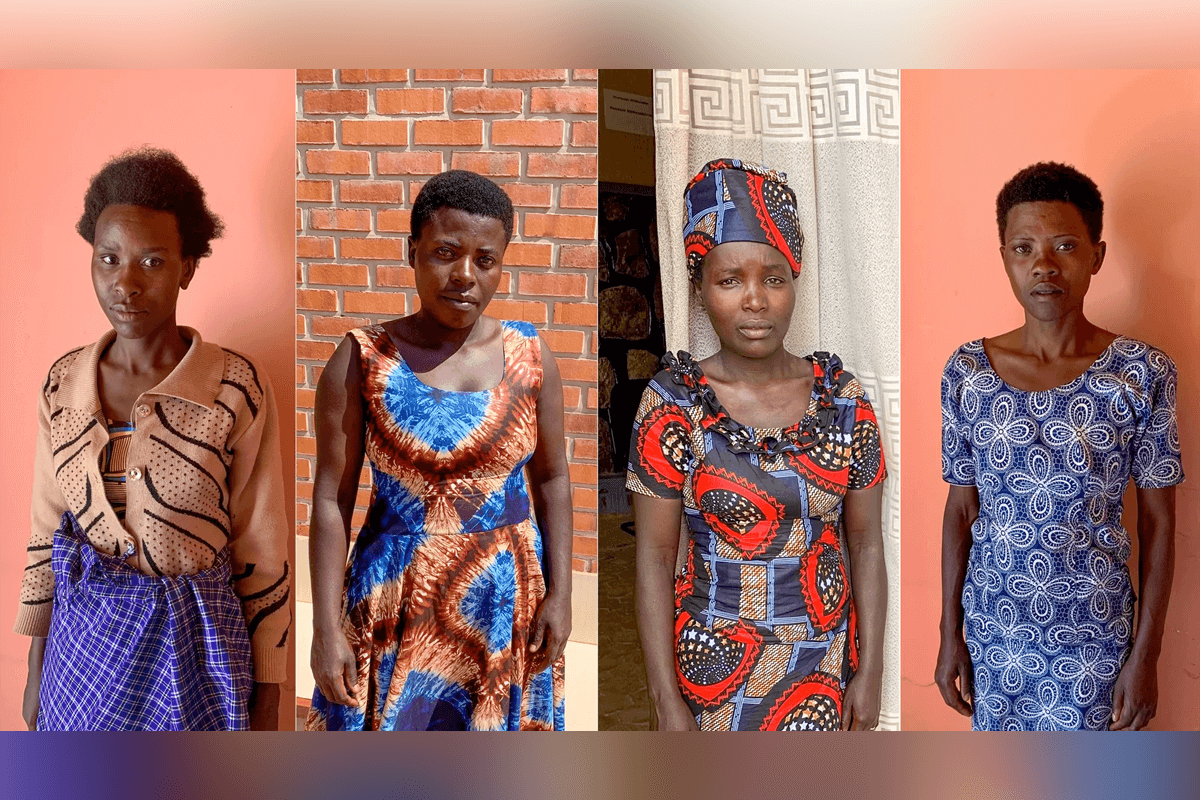
On 2 September 2023, US National Public Radio published a report about some young Rwandan women who were imprisoned for 5-15 years for having had abortions, and then pardoned and released before they had served their sentences. But this is not a “new” story from Rwanda. It has been happening since at least 2012.
Florentine, for example, was walking home one evening, carrying the potatoes she’d harvested in a basket on her head, when she passed a man she’d never seen before. “He asked me my name. I never said anything. I was just running away.” He raped her and she became pregnant. She told no one. She ended the pregnancy and was sentenced to 10 years in prison.
Rwanda began amending its abortion law in 2012 as part of a larger review of their penal code. This was a significant step in a country where it was previously taboo even to discuss abortion. An article, published in 2013, described some of the crucial elements in how this success was achieved. It began through a project launched by Rutgers WPF on “sensitive issues in young people’s sexuality” in several countries. “The Rwandan Youth Action Movement decided to work on unsafe abortion as part of this project. They gathered data on the extent of unsafe abortion and testimonies of young Rwandan women in prison for abortions; organized debates, values clarification exercises, interviews and a survey in four universities; launched a petition for law reform; produced awareness-raising materials; worked with the media; and met with representatives from government ministries, the national women’s and youth councils, and parliamentarians – all of which played a significant role in the advocacy process for amendment of the law.”
More recently, a ministerial order that took effect in 2019 further relaxed some of the rules, removing requirements that abortion seekers obtain a judge’s approval and stating that sexual assault victims do not have to prove they’ve been raped in order to receive a legal abortion.
However, according to a study published in 2019, health care providers “expressed ambiguities about their rights and responsibilities when providing abortion care. A prominent finding was uncertainties about the legal status of abortion.” They also expressed “a reluctance to be identified as an abortion provider… due to fear of occupational stigma. The dilemma of liability and litigation was present, and particularly care providers’ legal responsibility on whether to report a woman who disclosed an illegal abortion.”
The first pardon came in 2016, when 62 girls and women were released who had been imprisoned for abortion under the age of 16. Many of them had become pregnant following sexual abuse. Then, the Law of 2018 introduced some reform. It said that any person who self-induces an abortion is committing an offence, and if convicted, is liable to imprisonment for 1–3 years and subject to a fine. However, the law also said criminal liability is waived if the pregnant person is a child; if the pregnancy is a result of rape, forced marriage or incest up to the second degree; or the pregnancy creates a risk to the girl/woman’s health or that of the fetus. The law also requires that abortions be carried out only after consultation with a doctor, and that parental permission is needed for minors, requirements that both pose major barriers.
Since 2016, the Rwandan government has pardoned and released more than 500 women and girls who were incarcerated for abortion-related convictions. The government said 123 women remain incarcerated for undergoing an abortion but are likely to be released by next year. But for those who are released, reintegration into Rwandan society remains “challenging”.
The burden of convictions has fallen disproportionately on lower-income women, said Christopher Sengoga, director of HDI’s Center for Health and Rights. For many reasons, including lack of information and access to health care, he said, poor women in Rwanda are more likely to face prosecution and incarceration for abortion. They’re also more likely to have had to use unsafe methods, which he deemed a “double injustice”. Moreover, those who’ve been convicted and incarcerated often face rejection from their families and communities when they are let out.
Meanwhile, President Paul Kagame, who hands out the pardons, never seems to stop new trials and imprisonment of new young women, whom he then pardons several years down the line. And so it goes on… and on.
SOURCES: Reproductive Health Matters, by Chantal Umuhoza, et al. May 2013;21(41):49-56 ; ICWRSA Newsletter: Rwanda once again pardons and releases young women jailed for abortion, 21 May 2020 ; Midwifery, by Jessica Påfs et al. January 2020;80:102568 ; NPR, by Sarah McCammon, 2 September 2023 + PHOTOS: Sarah McCammon/NPR



